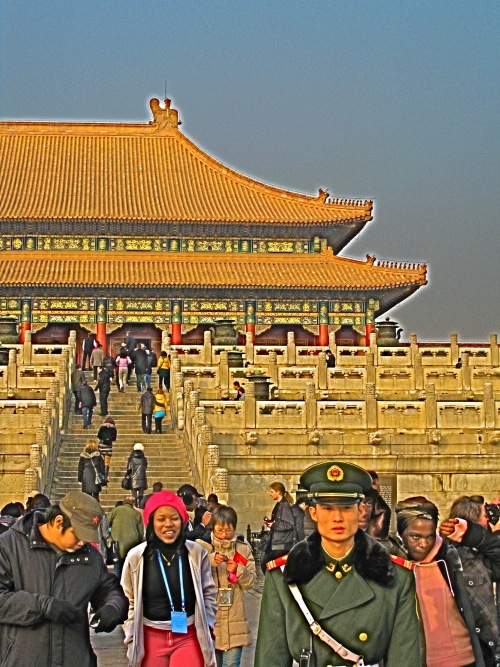 In bygone centuries when national borders were more vaguely defined than today, there was a natural merging across borders of cultures and peoples. Often nomads would traverse several countries. Once a border is well defined, the urge to police it is stronger. Territory is jealously guarded, any visitor is a potential invader. Therefore it makes sense to use border guards from the interior. This way they won't trun a blind eye to relatives sneaking back and forth. Over time, the country sealed by the border becomes very distinct from the 'other side'. There is a 'roll back' at the edges. Once they merged, now there is a sharp cut off.
In bygone centuries when national borders were more vaguely defined than today, there was a natural merging across borders of cultures and peoples. Often nomads would traverse several countries. Once a border is well defined, the urge to police it is stronger. Territory is jealously guarded, any visitor is a potential invader. Therefore it makes sense to use border guards from the interior. This way they won't trun a blind eye to relatives sneaking back and forth. Over time, the country sealed by the border becomes very distinct from the 'other side'. There is a 'roll back' at the edges. Once they merged, now there is a sharp cut off.
This is not meant to be an idealised portrait, merely an analogy for the way we think about knowledge. Once we specialise we set up demarcation lines between subject areas- 'borders'- and this leads to policing of those borders by those with the highest incentive to make the subject distinctive- not those at the edge but those at the centre- the institutions and people who gain from the subject's independent existence. But in a global sense this doesn't serve us very well. Just as policed borders lead to cultural intolerance and ignorance, so, too, do borders in knowledge lead to a lack of creativity, narrowness and infertility. The 'roll back' at the edges emphasises the differences between this subject and others and this makes cross-fertilisation of new ideas harder. New ideas are seen as unwelcome immigrants, people to repel at the border.
What's more, the border guard effect guarantees a 'no man's land'- the machine guarded strip where no one goes- this dead zone is artificial, but it is actually the most fertile area for any sort of knowledge- where it comes into contact with something other and new.
To get funding or backing we need a label, a specialisation. We stop at the border and obey the machine gun logic. We follow an unnatural inward looking path, a turning-in, focusing on identity rather than seeking knowledge. Learning is about being open, and ignoring manmande borders.